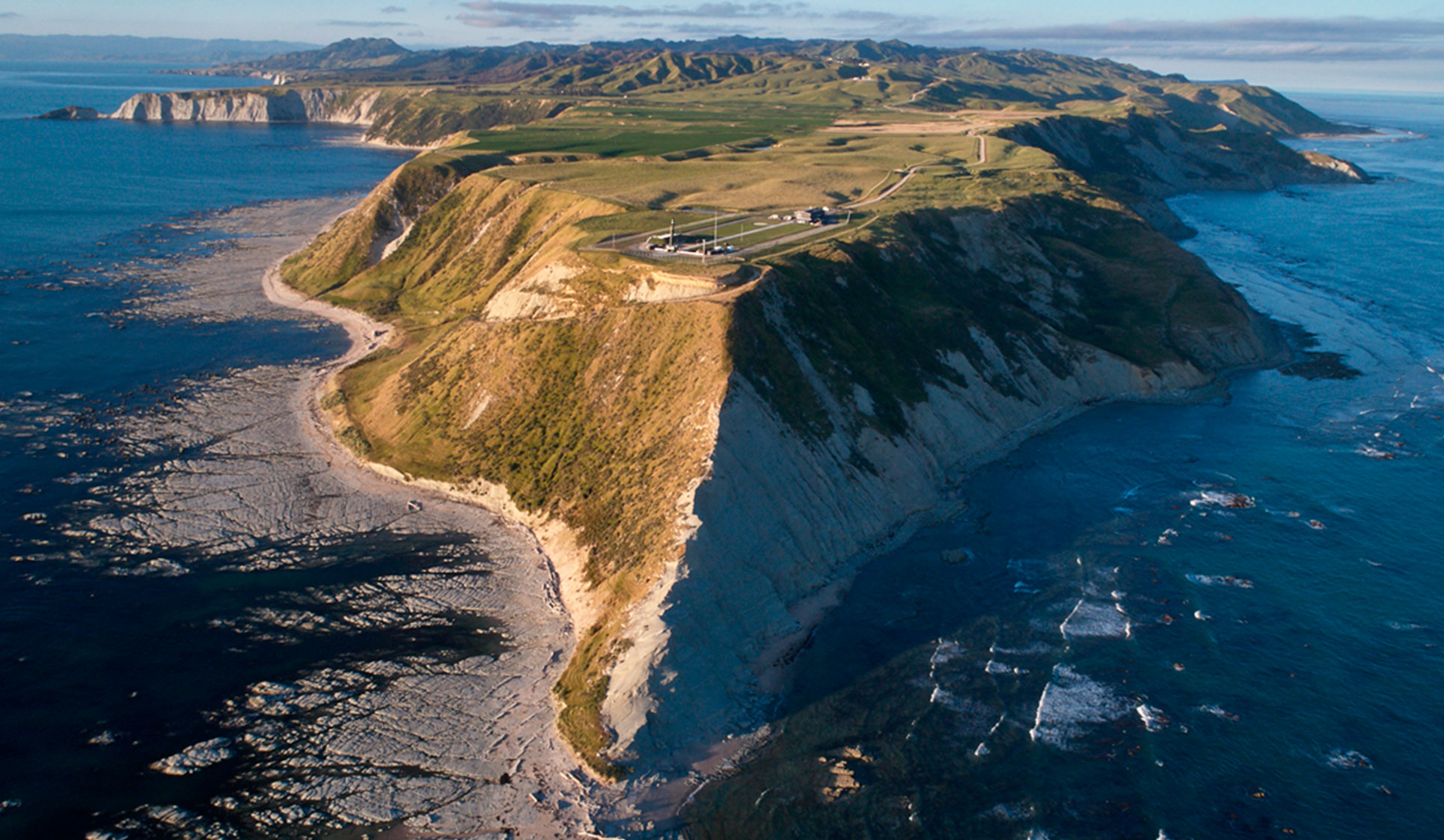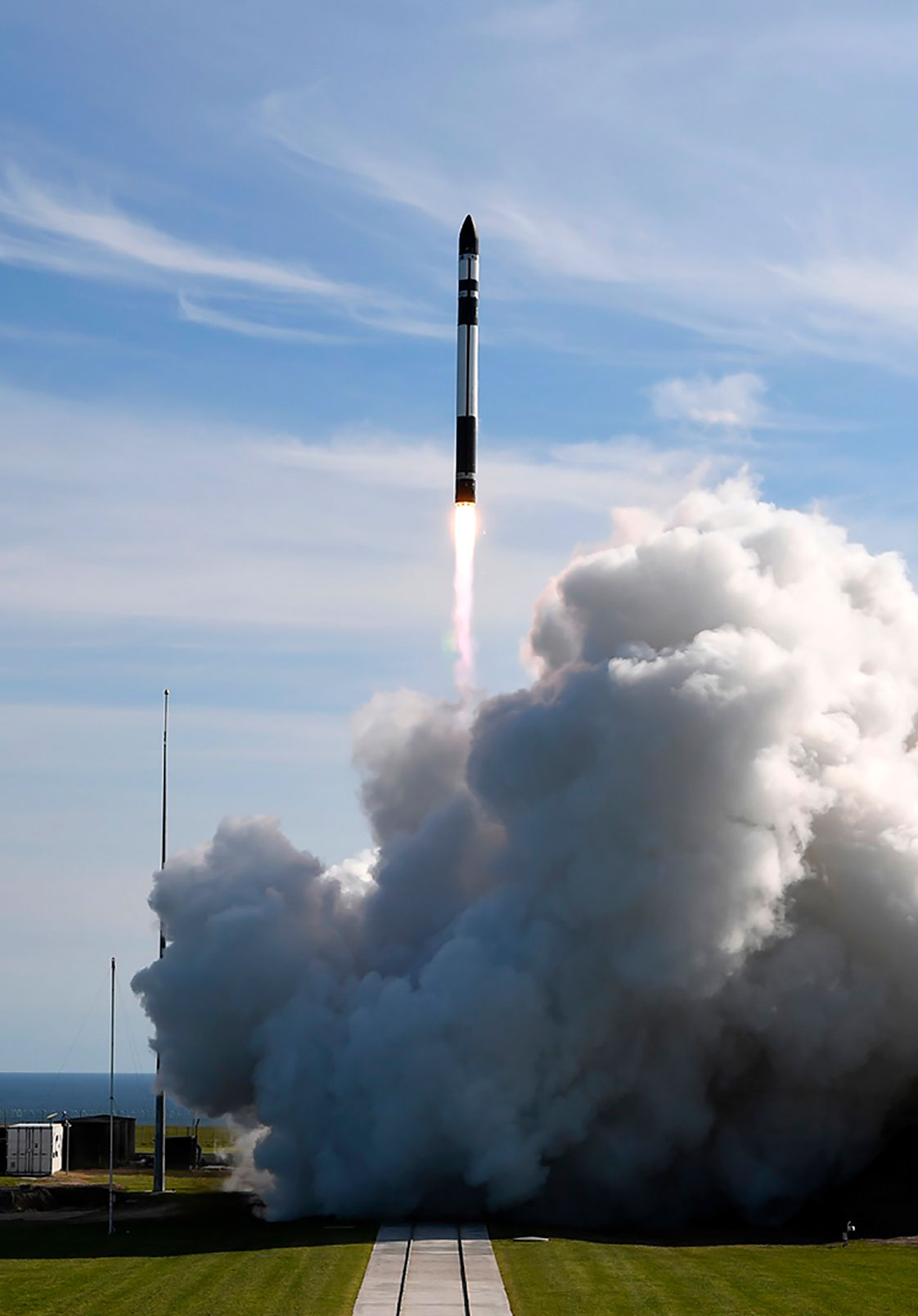
Mahia,
We Have A Problem
As superstar Kiwi startup Rocket Lab takes on work for the US military, a tiny beach community faces some major moral dilemmas.
By Ollie Neas
Pauline Tangiora lives in a house in the quiet hills behind Mahia, beyond a sign warning off oil and gas companies. The sliding door is plastered with stickers testifying to half a century spent fighting for peace around the world. One reads: “military solutions are problems”. Now in her 80s, Tangiora has faced down soldiers in Chiapas, Mexico, with Indigenous communities defending their land, and has been kicked out of Tahiti for protesting French nuclear-weapons tests. In the lead-up to the US-led invasion of Iraq in 2003, she comforted children in a Baghdad hospital who suffered from leukaemia brought about by uranium-tipped bombs dropped by the US during the previous Gulf War. She has spoken at the United Nations, met with the Dalai Lama and Archbishop Desmond Tutu, and in the words of one colleague, is known as the “leading kuia in the peace movement globally”.
These days, Tangiora spends more time at home than she used to, much of it in a comfy chair by the door. This was where she sat four years ago when the CEO of a billion-dollar space company stopped by for a cup of tea. The Mahia Peninsula had been chosen as the launch site for US company Rocket Lab, and founder and CEO Peter Beck was paying Tangiora a visit to see how she felt about it.
By this point, Rocket Lab was no longer just a plucky Kiwi start-up. Beck, a self-taught rocket engineer from Southland, had created a company that was fast becoming the world leader in the emerging small-launch market, with its lightweight Electron rocket allowing small satellites to be launched cheaper and faster than ever before. Launches from Mahia were set to start soon, with customers booked for years into the future.
When Mahia was first chosen, Tangiora had some concerns. But after speaking to company representatives and attending public information sessions at the local town hall, she felt reassured that the environmental impact would be minimal and that the technology would benefit New Zealand farmers and orchardists.
Pauline Tangiora was sitting in a comfy chair by her door when the CEO of a billion-dollar space company stopped by for a cup of tea.
By the time Peter Beck stopped by, Tangiora had given Rocket Lab her blessing in media outlets from the Wairoa Star to the Wall Street Journal. In November 2016, she was one of a few locals invited to attend the launch-site opening, presided over by Economic Development Minister Steven Joyce. While some in the community weren’t happy with Tangiora’s decision, she thought it was the right thing to do.
But as Tangiora spoke with Beck in her living room, something was already starting to trouble the old peace activist. She had heard rumours of the company’s military connections, rumours that didn’t sit well with her decades of activism. But not knowing whether they were true or not, Tangiora didn’t say anything.
Before long, the tiny beach community — population 1100 — was officially the “gateway to the galaxy”. The Wairoa District Council made plans for a “Space Coast” cycleway and Mahia’s campground inserted aliens into its logo. Trucks carried rocket components and satellites on roads the government was pumping millions into upgrading. Local internet access, previously sluggish, got better. With their American accents and branded t-shirts, many Rocket Lab staff were easy to spot at the pub. Rocket Lab brought a sense of opportunity. It even sponsored the local iwi basketball team.
But by the time that regular launches began from her ancestral land in 2018, Tangiora no longer supported the space company. Like others in her community, she had come to realise that Rocket Lab wasn’t just an exciting new development, but a challenge unlike anything the community had ever grappled with before. What was the price, really, for co-habitating with a company determined to change the world?
The last time I saw Tangiora, I spotted another sticker on her sliding door. It was above the one declaring “military solutions are problems”, and it said “Rocket Lab”.
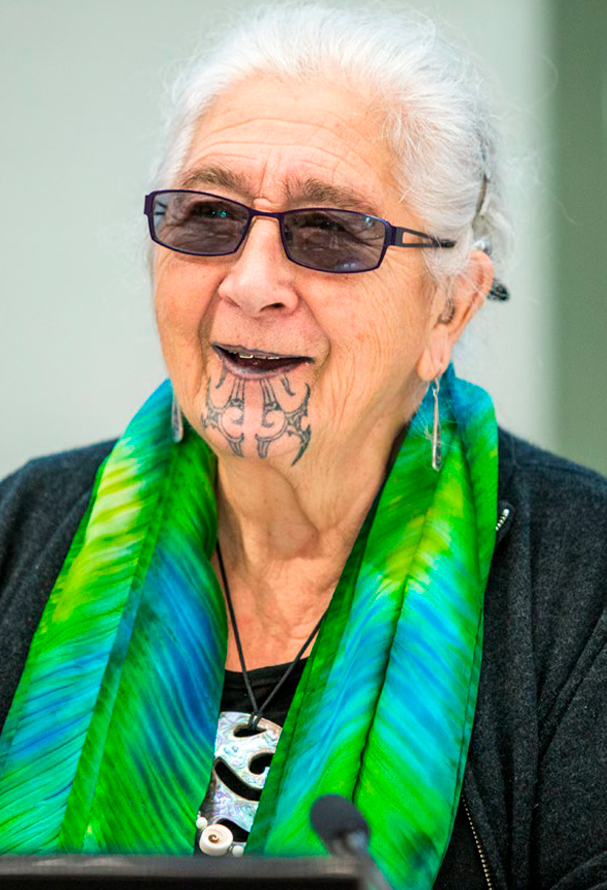
Pauline Tangiora. Photo: Supplied.
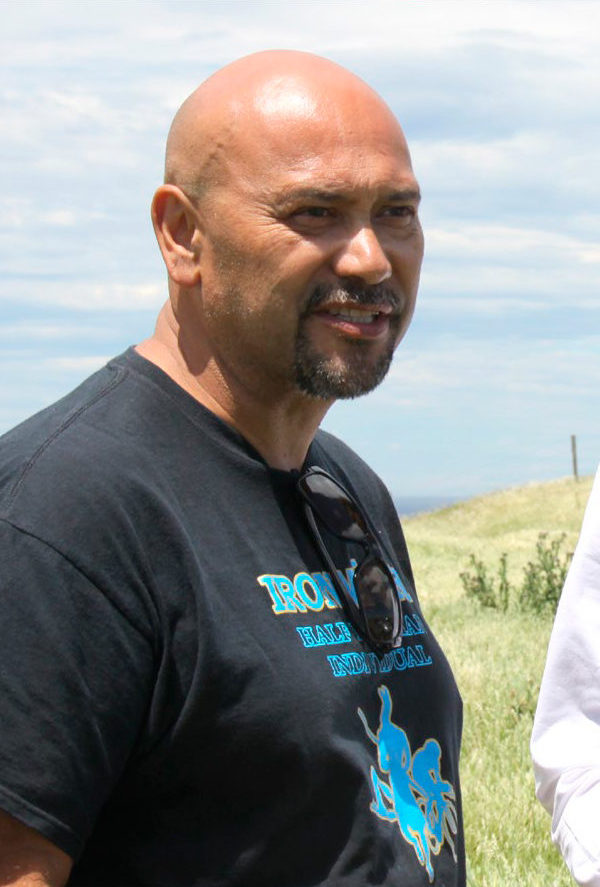
George Mackey. Photo: Wairoa Star.
The world’s only private rocket-launch site sits at the southern tip of Mahia Peninsula, down a gravel road that winds along cragged ridges and through pasture, in the middle of an operational sheep and beef farm. You wouldn’t be able to find it unless you knew where to look.
This land was once the home of Rongomaiwahine, the highborn ariki whose descendants make up the iwi of her name. It was her ancestor, Ruawharo, who named the peninsula Te Mahia, meaning an “indistinct sound”. Just beyond the peninsula’s end, on the small island of Waikawa, Ruawharo established a house of learning, which became the spiritual centre for the entire East Coast. Two hundred and fifty years ago, Captain Cook renamed it Portland Island. But he was not welcomed, and sailed on. Waikawa is now home to Rocket Lab radio antennae.
To this day, the land at the end of the peninsula, known as Onenui Station, remains in the hands of Rongomaiwahine’s descendants. For 70 years, it has been held in a single farm block managed by a Māori land incorporation on behalf of its shareholders, most of the Ngāti Hikairo hapū.
In February 2015, Ben Mackey, the chair of the Onenui management committee, received a call from Sir Michael Fay, the millionaire merchant banker. Fay, one of New Zealand’s richest men, had bought a farm on the peninsula and wanted to introduce Mackey to some people he knew. Five years earlier, Fay’s Great Mercury Island property had been used by a little-known Kiwi space company called Rocket Lab for a test launch. Now backed by millions in venture capital, Rocket Lab was scouring the east coast for somewhere to build an orbital launching site. The remote Mahia Peninsula, with its quiet airspace and empty ocean, fitted the bill well. Was Mackey interested in hearing more?
Mackey and his son George, who would later become Onenui chairman, drove to Napier and met Fay, Peter Beck and Rocket Lab executive Shaun D’Mello for lunch at Mister D’s bistro in the central city. Lunch was on Rocket Lab. “They told us what they were planning to do: ‘We want to launch rockets, and we want to know if we can launch them from the southern end of your farm,’” George Mackey recalled. “A couple of hours later, Dad and I left the meeting and looked at each other and thought, Jeepers, are these guys for real?”
Driving home, Mackey was already mulling over how he could get Onenui’s 1700 shareholders on side — it was their land, after all. “We thought the best option was to actually get Peter Beck in front of the shareholders. Have him tell his story.” So one Saturday morning in September 2015, Beck came to Kaiuku Marae for a special meeting. Beck’s energetic mix of vision and charisma — one that had already won over governments and venture capitalists — put them at ease.
“They just warmed to him”, Mackey recalled. “The notion that there was this fellow New Zealander looking to do something that no one else had done before — that really got our shareholders on board.”
There were only about 60 shareholders present — a turnout which Mackey says is not unusual. Towards the end of the meeting, the board called for a show of hands to see who was in favour of proceeding. Most of the attendees raised their hands — and with that, the board was able to move forward with a commercial arrangement.
Forty minutes away in the town of Wairoa, discussions were already underway with the district council. “It’s quite a funny story,” says Wairoa Mayor Craig Little, a fourth-generation farmer. “A couple of Peter Beck’s staff came in and met with us and said, ‘Can you keep this top secret?’ I said, ‘Well, you might pay to change your shirts then’ — because they had Rocket Lab shirts on.”
One of the smallest local authorities in the country, the council had spent years battling Wairoa’s image as a dying town with a gang problem. It had one of the highest unemployment rates in New Zealand, and the jobs that were there — mainly in farming and forestry — were low-paid. The population was declining. In 2015, the council was literally struggling for survival, fighting a proposal to be amalgamated with the other Hawke’s Bay councils.
“Dad and I left the meeting and looked at each other and thought, Jeepers, are these guys for real?”
At first, Little thought Rocket Lab’s proposal was “dreamland stuff”. That changed once he visited the company’s Auckland production site. An electrician in a past life, Little couldn’t believe the technical complexity of the place. “It was squeaky clean. It blew me away to be honest.”
He says, “The biggest thing for a town like Wairoa is, you need a point of difference. So we were hoping like hell that it would happen.”
For a while, Rocket Lab seemed to be favouring a site in South Canterbury. Then one day, while out on the farm, Little received a call. It was Peter Beck.
“He was sort of talking in roundabouts, and I said, ‘Peter, just hit me with it, what do you need?’ And he said, ‘Well, you’ve always said you can get us consent within seven or eight days. Do you think you’d be able to do that if we decide to go to Mahia?’ I said, ‘Definitely’.”
Just seven working days after Rocket Lab filed its resource consent, it was approved. The council in Wairoa treated the application as non-notifiable — meaning the public didn’t need to be consulted. “I think they hold the record for the fastest consenting on a rocket range in the history of the world”, then-Economic Development Minister Steven Joyce later remarked. Further permits were granted by the Hawke’s Bay Regional Council a few weeks later.
On a sunny Saturday in November 2015, the launch site was blessed and a lease agreement signed in a ceremony presided over by the minister of the local Ringatū church. Beck gifted Mackey a small Perspex box to fill with something special and promised to send it into orbit for the landowners on the company’s first launch.
“So that was it and we haven’t looked back,” Little says.
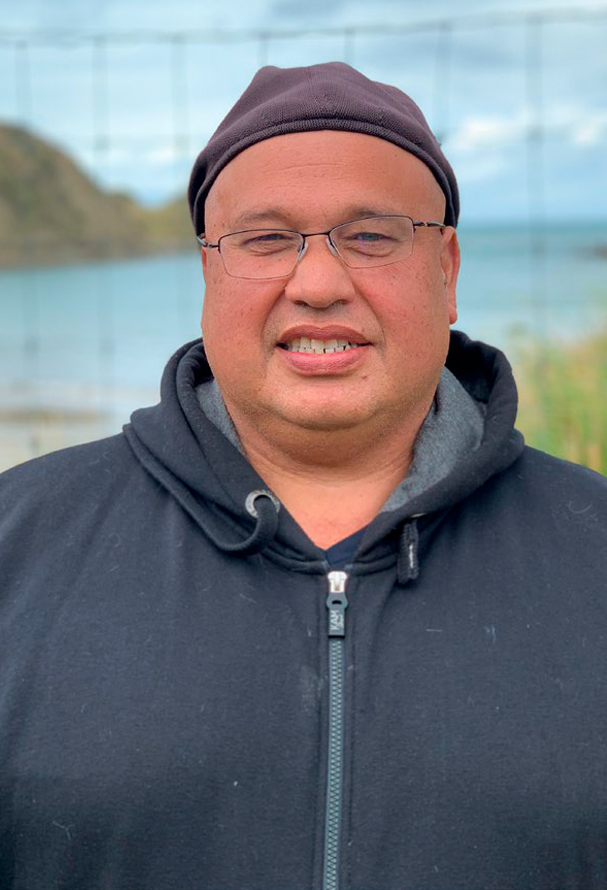
Moana Rongo. Photo: Supplied.
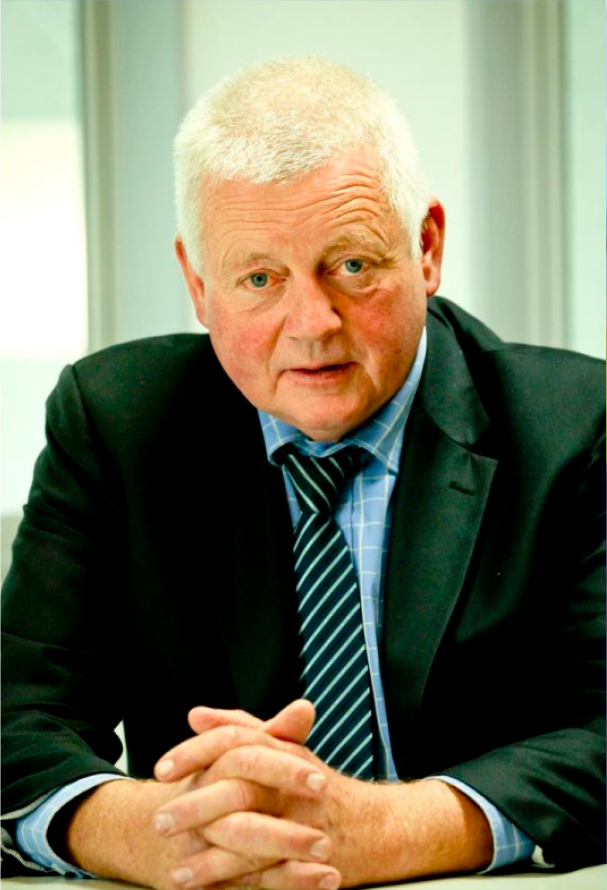
Craig Little. Photo: Gisborne Herald
Before long, Rocket Lab was the talk of the town — the biggest thing since the upgrade of the sewage system, as a local café owner put it. As construction got underway, representatives hosted public meetings at the town hall and marae, spoke to community groups and businesses, took selfies with the Wairoa Lions Club, fielded calls from residents through a dedicated phone line, and introduced themselves door to door, meeting more than 300 people over 60 days. An early indication that not everyone had been won over came when a road-side Rocket Lab sign was found beaten up and burnt on the beach.
Moana Rongo thinks he knows why. Rongo was chair of the Rongomaiwahine Iwi Trust until late 2019. While the council’s resource management decision report recorded that “there is general acceptance by Maori district wide”, Rongo says “most” iwi members he spoke to during this time voiced concerns of one kind or another.
Before applying for consent, Rocket Lab engaged a number of community groups, including the council’s Māori Standing Committee. But the iwi, which is mandated to speak on behalf of tangata whenua, was not consulted. To make matters worse, Rocket Lab didn’t get around to speaking to the iwi until after they had paid a visit to the local boating club. “Do you know how insulting that is?” Rongo asks.
“Representing the iwi, we were very negative towards it, because why wouldn’t we be? We had no say. The approval process should have required the iwi to be part of it,” says Rongo. “But the government here rushed the resource consent through and the iwi didn’t have enough time to consult with its beneficiaries.” (Little says the council went beyond what would normally be expected for a consent, including “asking around what everyone thought”. The speed of the approval, he added, reflected the fact that the council “really wanted it” and had “done all the work beforehand”).
Rongo’s main concern was how the launch site would affect tangata whenua’s access to the coast and sea. For safety and security reasons, parts of the peninsula, Waikawa and surrounding ocean are closed in the lead up to each launch. In preparation for the early test launches in May 2017 and January 2018, that area extended 60 nautical miles downrange and was 13 nautical miles wide. “Our people have been here 800, 1000 years,” says Rongo. “Then suddenly we’re being told we can’t go and collect our kai moana.”
The exclusion areas are now much smaller, and Rocket Lab says the cumulative time that land has been off-limits is less than 52 hours. At the same time, launch frequency is increasing. Ultimately, Rocket Lab aims to launch up to 120 times a year — more than twice weekly. That could mean serious disruption.
Rongo acknowledges that the land is a matter for Onenui’s shareholders (of which he is one), and believes its board has been trying to do what is best. Still, he worries about the wider implications. “We’re allowing corporate America to dictate how, when and what in our area. I don’t think people understand what that could mean.”
In 2018, Rongo put it to Peter Beck directly. “I asked him, ‘How would you feel if you’ve got to go to the corner dairy to ask if you can park up your own driveway?’” Rongo recalled. He appreciated the chance to bring his concerns to Beck, and over time the relationship between the company and iwi improved. Dedicated iwi meetings are now held twice a year.
But there was another question that kept coming up in public gatherings. What were the launches for?
Since its early days in Mahia, Rocket Lab had emphasised the scientific, commercial and environmental benefits of its business. In a typical comment, operations manager Shane Fleming told the Wairoa Star in 2015 that the work done by Rocket Lab satellites ranged from “weather monitoring to measuring the effects of natural disasters and tracking global deforestation”.
This was all true. But it wasn’t the full story.
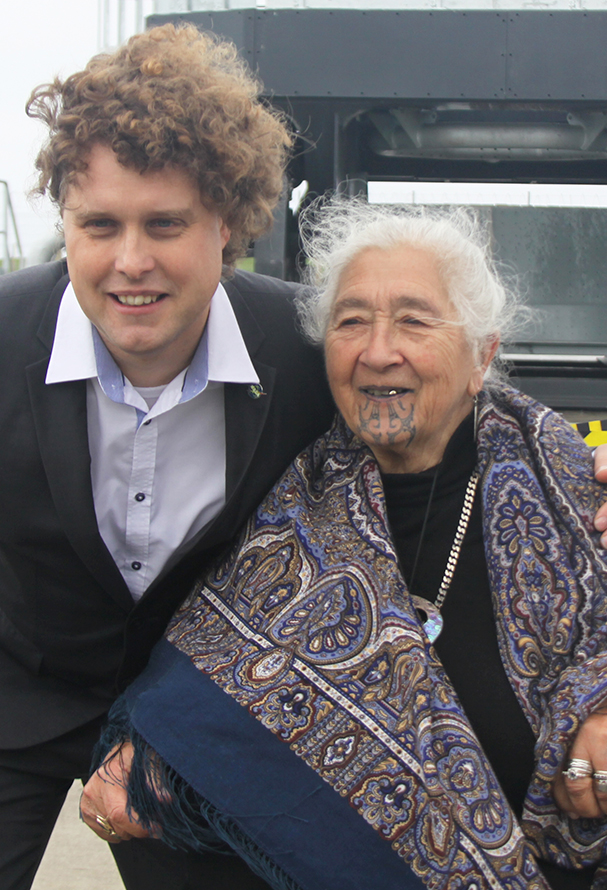
Pauline Tangiora and Peter Beck at the launch of Rocket Lab. Photo: Wairoa Star.
Rocket Lab’s Mount Wellington production complex is based in a converted bike factory at the end of a cul-de-sac, next to a used car company. Inside, guys in Rocket Lab t-shirts (they are mostly guys) inspect rows of rockets as heavy metal blares from the speakers. No electronic devices are permitted beyond the darkened mission control room or on the huge production floor. In a room in the corner, a robot called Rosie JT3000 (JT for “job thief”) is cutting, drilling and sanding carbon composite rocket parts. Two huge US and NZ flags hang from the ceiling, side by side.
While the company’s headquarters are in Long Beach, California, Auckland is where most production occurs. Around 400 of Rocket Lab’s 600 staff work here, giving New Zealand one of the highest number of working rocket scientists in the world per capita.
Near the propulsion room, I catch my first glimpse of the curly haired CEO. Unlike his more famous competitors — Elon Musk of SpaceX and Jeff Bezos of Blue Origin — Beck is actually a rocket engineer, not just a man with big dreams and piles of cash (though now he has plenty of both).
The son of a teacher and a museum director, Beck wanted to make rockets for as long as he can remember. As a toolmaking apprentice at Fisher & Paykel in Mosgiel, he spent his evenings tinkering in the workshops — at one point blasting down Dunedin’s Princes Street in a rocket-powered bicycle — before moving to Industrial Research in Auckland. He founded Rocket Lab in 2006, believing he stood a better chance of reaching space on his own than working for the huge US conglomerates that dominated the market.
At first, it was the engineering challenge that motivated him. But in true Silicon Valley style, Beck has become an evangelist for the possibilities of the business he has built around him. He often speaks of “democratising space”. Rocket Lab’s stated mission is to “open access to space to improve life on Earth”.
In 2008, Beck and then-co-director Mark Rocket, who put up the company’s early seed capital, speculated to Metro magazine about different market areas they might target. These included solar physics, atmospheric and climate change research. But one area which they had “talked about at length” was off-limits. “We said right from the beginning if it’s involved in the military we don’t want anything to do with it,” Beck explained. “The military can be quite a tempting cherry because a lot of money gets poured into it but we’re about science, we’re not about killing people.”
Three years later, Mark Rocket left the company, uneasy with some of the projects it was taking on. He hasn’t spoken publicly about the specifics of his departure, but over time a fuller picture of the company’s work in those years has emerged.
Starting in 2010, Rocket Lab began a series of contracts for US military agencies — especially for the Defense Advanced Research Agency, or DARPA, the Pentagon agency tasked with developing technologies that “maintain and advance the capabilities and technical superiority of the United States military”. In 2012, Rocket Lab produced a special rocket fuel for DARPA. Its intended uses, according to a patent filed by the company, include acting as a propellant for sub-orbital airborne missiles. That same year, a heat-protective material that Rocket Lab supplied to defence firm Lockheed Martin was approved for use on Patriot missiles — the surface-to-air missile system used by the US, Israeli and Saudi militaries, including in Iraq, Syria and Yemen. (Rocket Lab says the material was “evaluated and qualified” for use on “anti-missile systems” but that less than 20 kilograms of material was produced for this purpose.)
“With space, there’s all different shades of grey,” says Rocket Lab CEO Peter Beck.
By 2016, Lockheed Martin had come on board as an investor, prompted by demand from the US government. So, too, did the CIA’s venture capital firm In-Q-Tel, whose investments offer useful clues to how America’s intelligence community sees the future of espionage. In recent years, that has seen In-Q-Tel spend big on social media data mining, artificial intelligence — and space.
There was virtually no discussion of this military history as Rocket Lab established its Mahia operations. In December 2018, Rocket Lab launched what it described as an “educational” mission for NASA. At the time, I found a diagram of the satellite labelled “DARPA”. The US Defense Department confirmed to me that the satellite was in fact a DARPA project intended to improve a radar system whose uses include detecting missiles and stealth aircraft. The resulting story in The Spinoff was the first time New Zealanders learned that Rocket Lab was launching US military payloads from our soil.
And that was just the beginning. To date, seven missions from Mahia have carried 13 payloads for US military or intelligence agencies. They range from US Special Operations Command, which conducts covert operations around the world, to the National Reconnaissance Office (NRO), a little-known but major spy agency that collects and intercepts data from its fleet of satellites and ground-stations to feed to other military and intelligence agencies. Rocket Lab’s launch for the NRO in January 2020 was the first for the agency from outside the US in its entire 60-year history; more are scheduled for this year.
Most of these payloads have been designed to improve the complex space infrastructure that enables modern military activity, from communicating with troops, to gathering intelligence to targeting missiles. But official briefings show the government expects to approve “operational” satellites, too. And the purpose and capabilities of four classified satellites launched last year for the NRO remain secret.
For Pauline Tangiora, these revelations felt like a betrayal. “It really gutted me, because I felt that I had been disloyal to the world that I had worked for for 40 years. I had to say sorry to our people,” she says.
From her years campaigning against nuclear weapons, Tangiora was very familiar with the name Lockheed Martin. “Everyone knows they make nuclear weapons,” she says. “I went around the world to protest against them. To see that company at my back door . . .”
Tangiora’s voice falters. If she had known Rocket Lab would launch military satellites, she says, she “definitely” would have opposed the Mahia site. “There was no discussion of the military side of it. We were told it would just be for the benefit of farming and horticulture. They reassured me that the payloads would be to look at the land and to look at the weather months ahead.”
Tangiora was so upset that one day, one of her mokopuna painted over the Rocket Lab logo on a drink bottle the company had given her. Now she drinks from a bottle covered with butterflies and flowers.
Rocket Lab says it has been “as transparent as possible” and has shared information about its clients as agreements have been confirmed. There are no public records of its community meetings in Mahia, so it is difficult to verify exactly what was said. But in local news coverage from that period there is no mention of the prospect of launches for the US military, and comment from Rocket Lab focuses on the scientific, environmental and commercial benefits. Wairoa mayor Craig Little, former Gisborne mayor Meng Foon, and former iwi head Moana Rongo say the possibility of military launches didn’t feature in their discussions with Rocket Lab.
For Rongo, this knowledge would have been crucial. “I don’t think our tūpuna — our ancestors — would agree with our land being used for military purposes for another country,” he says. “We’re part of the land. It doesn’t sit with us naturally to be using our land for other countries to use militarily.”
George Mackey says that Rocket Lab’s military customers were part of the early-stage discussions with Onenui and the management committee emphasised that it would not be comfortable with “launching weapons of mass destruction and things that were going to take human life”. “We are aware he has customers that are military, but he gives assurances that the satellites are merely for tracking and ensuring safety.”
Back at the production complex in Auckland, in a meeting room near mission control, Peter Beck enters the room in a hurry and shakes my hand enthusiastically. I ask him how much time he’s got to talk. “About three minutes,” he says. Almost immediately, his phone starts to ring. In an almost comically short interview, I ask him about the community’s concerns. “We were very upfront with everybody. And we still are,” he says. “We’ve been very clear from day one, not only with the community but with everybody who works here, what we will do and what we won’t do. We are just not going to do weapons.”

Electron rocket at Launch Complex 1. Photo: Rocket Lab.
New Zealand is now one of only 11 countries to launch rockets into space. And Rocket Lab’s runaway success has presented the government with some new and thorny questions in a realm where the lines between scientific, commercial and military uses are easily blurred.
The New Zealand government has backed the company since its early days. It was New Zealand Trade and Enterprise that first introduced the Rocket Lab to Lockheed Martin, and the government has, in Beck’s words, “bent over backwards” to help the company establish operations here. In 2016, the government created a space agency, signed a treaty with the US to allow the transfer of sensitive American technology, and pushed a bill through Parliament to regulate space activity. In other words, the regulatory regime governing New Zealand’s space activities was essentially designed for a single company.
In Parliament, MPs considering the Outer-Space and High-altitude Activities Act in late 2016 and early 2017 jostled to claim credit for the company’s success. Labour MP David Clark quoted Elton John’s “Rocket Man”; National’s Todd Muller drew inspiration from the songbook of David Bowie. Stuart Nash, who has since become the minister responsible for the space regime, criticised the Green Party for only expressing conditional support. In the words of Labour MP David Parker, “The intention is with this legislation that it be non-military.”
But behind the scenes, planning was already underway to launch satellites for US military agencies. In May 2017, the Space Agency prepared a briefing for National’s Economic Development Minister Simon Bridges. Previously redacted passages, now available following a complaint to the Ombudsman, show that the NRO was already among Rocket Lab’s customers; space agency officials were engaging with the agency in December 2016.
From the beginning, the government recognised that a red line would have to be drawn somewhere. But where? The Space Agency briefing noted that most payloads are “dual-use” — that is, a military satellite may have some civilian functions, and vice versa, and the uses can change over time. To complicate things even further, “the full capabilities of payloads are always not disclosed publicly in order to protect commercial, military or technical and scientific advantage”.
There were two key factors creating pressure on the government to take a permissive approach. One was New Zealand’s security relationship with the US — a relationship that has travelled quite a distance from the tense nuclear standoffs of the 1980s. Space Agency officials noted that the new Trump Administration was “actively seeking greater contributions from its security partners” with space launches adding “a new strand” to this relationship. Another factor was the significant revenue Rocket Lab earned from its US contracts. “The government has become reliant on Rocket Lab to deliver payloads of national significance, so the reliance is both ways,” Beck told SpaceNews last year.
Throughout all of these deliberations, a major question loomed: What would the New Zealand public think? The Space Agency’s briefing noted that “certain groups” might be “motivated to disrupt launches if they were aware that US government security payloads were being launched from New Zealand”. “Even a single protestor could have a disproportionate effect”, the briefing went on, “potentially undermining the commercial viability of this growing industry”.
But rather than consult the public — at that time still in the dark about the possibility of US military launches — the Space Agency, under the newly elected Labour government in 2018, recommended a joint communications strategy with Rocket Lab that emphasised the benefits to New Zealand and “considered” the details to be made public. The first NRO launch was not officially announced until 10 days before lift-off — around three years after discussions between New Zealand officials and the spy agency began.
And so instead of a red line, the government appears to have drawn a grey one. All launches and payloads are signed-off by the economic development minister (currently Stuart Nash) on advice from the Space Agency. The agency consults with numerous offices, including the Ministry of Defence and our intelligence agencies, the GCSB and SIS. One basis for declining a permit is if a payload is not in the “national interest”. Clarification released by Cabinet states that payloads contributing to nuclear weapons programmes will not be approved. Neither will those supporting operations “contrary to government policy”. What exactly that means in practice remains unclear.
There are larger geopolitical issues at play, too. New Zealand’s role as a launch pad for sensitive US satellites is made possible by our place in the secretive Five Eyes intelligence sharing arrangement, alongside the US, UK, Canada and Australia. New Zealand officials now see Rocket Lab’s military launches as a “tangible contribution to the broader Five Eyes intelligence network”, in the words of a heavily redacted briefing.
In February, Rocket Lab announced that its next mission would carry an experimental payload for the US Army’s Space and Missile Defence Command, testing ways to provide imagery to “warfighters”. The US Army says the technology could assist with a type of missile with “precision surface-to-surface deep-strike capability.” Facing questions in Parliament, Nash defended his approval of the satellite — but admitted he was “unaware” of its “specific military capabilities.”
In Auckland, I asked Beck how he felt about space technology that contributes to weapons targeting. “With space, there’s all different shades of grey,” he told me. “You could say we’re not going to do GPS, because GPS is used in targeting systems. But GPS is also a fundamental necessity for everyday life these days. Communications and weather satellites are other good examples. Yeah, okay, they’re used by the military, but also that data is fed into the larger network of all the weather forecasting that everybody in the planet benefits from.”
The problem is that Rocket Lab’s military clients do not just operate GPS or weather satellites. Theoretically, the technology the US Army is testing might benefit civilians at some point. But the more immediate and intended outcome is improving military operations on earth, where the US is currently fighting wars in seven countries.
One notable sign that Rocket Lab intends to pursue more national security contracts was an August 2020 appointment to its board of directors: Michael Griffin, a Department of Defense official in the Trump administration. Griffin, a former NASA administrator, also previously served as head of the CIA’s In-Q-Tel (the Rocket Lab investor), and has advocated for the use of high-powered space lasers.
Rocket Lab’s ability to launch payloads quickly is coveted by military planners, who are eager to be able to replace space assets fast in a conflict. It is the only company to actually demonstrate this capability. In early March, news breaks that Rocket Lab — now valued at $5.7 billion — will list on the Nasdaq stock exchange, with backing from the world’s largest asset management fund. Investor documents note that the US government accounts for about half of Rocket Lab’s work; the majority of it for defence agencies.
For local leaders who backed Rocket Lab, it all comes down to trust — and they trust Peter Beck. “At the end of the day, I don’t think Peter would be involved in anything too sinister to be quite honest,” says Craig Little. “And the technology Peter has — gosh — I’m pleased that it’s in his hands rather than with another country that doesn’t like us a hell of a lot.”
When I asked George Mackey about the company’s latest US Army launch, he said he would be worried if launches were associated with anything that could “be harmful to human life. And I think Peter Beck would be the same. I don’t think he would go back on his own principles. But then we’re also realistic around the shareholder base of the company.”
Dean Whaanga, a new member of the Onenui board, puts it more coyly. In 2012, Whaanga returned to Mahia after 40 years of military experience in the Navy, Army and British Foreign Service. He now provides security services to Rocket Lab, helping to transport often-sensitive cargoes from Auckland headquarters to Mahia. He tells me that he is “very comfortable” with what Rocket Lab does.
“You wouldn’t know what’s in that box. You wouldn’t even know we’re in Auckland, and all of a sudden we’re back in Mahia. But you know, what you don’t know is not going to harm you,” he says.

George Mackey (in sunglasses) and Peter Beck (second from right) signing the Rocket Lab agreement at Onenui Station. Photo: Wairoa Star.
Just before Christmas, I attend a dinner at Te Rākatō marae, five minutes’ drive north from the idyllic Mahia beach. A big feast is put on: fresh kina, karengo, roast ham — the works.
As the band warms up after dinner, I sit on a bench outside with Willie Wairau and Shamus Terry, two locals I’ve got to know over the past year. Wairau left Mahia for the freezing works in Invercargill in 1968, returning 14 years later when the works closed. He remembers cleaning up after Cyclone Bola in 1988, a defining moment for many older folks here.
Wairau tells me he believes there are satellites watching Mahia from space that can see through the dark of night. It sounds like a conspiracy theory, but Rocket Lab has launched several satellites for private intelligence firms and the US Air Force that can penetrate cloud, darkness — even some light buildings.
Both Wairau and Terry are Onenui shareholders. When I first spoke to them in 2019, they had concerns about the military launches, about the consent process, about shareholders’ lack of oversight over the deal with Rocket Lab. But now they’re not so sure. “Got to get with the times,” Terry tells me.
Door knocking around the area, most people tell me they have no issue with the Rocket Lab. Almost everyone mentions a scholarship it offers each year granting $20,000 to a local student to pursue university study in science, technology or mathematics. Others mention the jobs. Of the 17 employees at the launch site, at least 10 are locals. Then there’s the more than 20 suppliers and contractors from the region which Rocket Lab says it engages regularly. An employee at the pub tells me of her four-year-old son’s excitement as he watches the rockets take off.
In 2018, the Onenui management committee renegotiated the arrangement with Rocket Lab, securing a fee of $50,000 per launch, plus the lease. Its revenue from Rocket Lab now exceeds that from the farm itself. Last year, Rocket Lab provided approval for Onenui to build a viewing platform for tourists on the peninsula. (The current viewing spot is over 25 kilometres from the launch pad.)
“There will always be naysayers,” says George Mackey. “But I think in 10 or 20 years’ time, people will look back and think, jeepers, that committee took a really bold step that not many would have taken, and it’s been positive for the shareholders and for the region, and probably the country.”
Soon after the announcement of the next US Army launch, a young mother from Mahia named Charlotte Christie helps to form a public pressure group. “This whenua that Rocket Lab is located on houses bones of our tipuna . . . Rocket Lab it’s time to HAERE ATU. You are not welcome here”, she wrote on a popular local Facebook page.
Sitting outside Te Rākatō marae, I recall something that Mackey said to the local paper back in 2015 — that soon the community would be linked to Rocket Lab’s “celestial waka”. I look at the night sky and imagine the thousands and thousands of satellites that Rocket Lab hopes to launch, hurtling through space, imaging, collecting, testing, all spinning around the big celestial waka that carries us forward — me, you, Pauline Tangiora, Peter Beck, even the US military.
Ollie Neas is a journalist and barrister based in Wellington.
This story appeared in the April 2021 issue of North & South.
